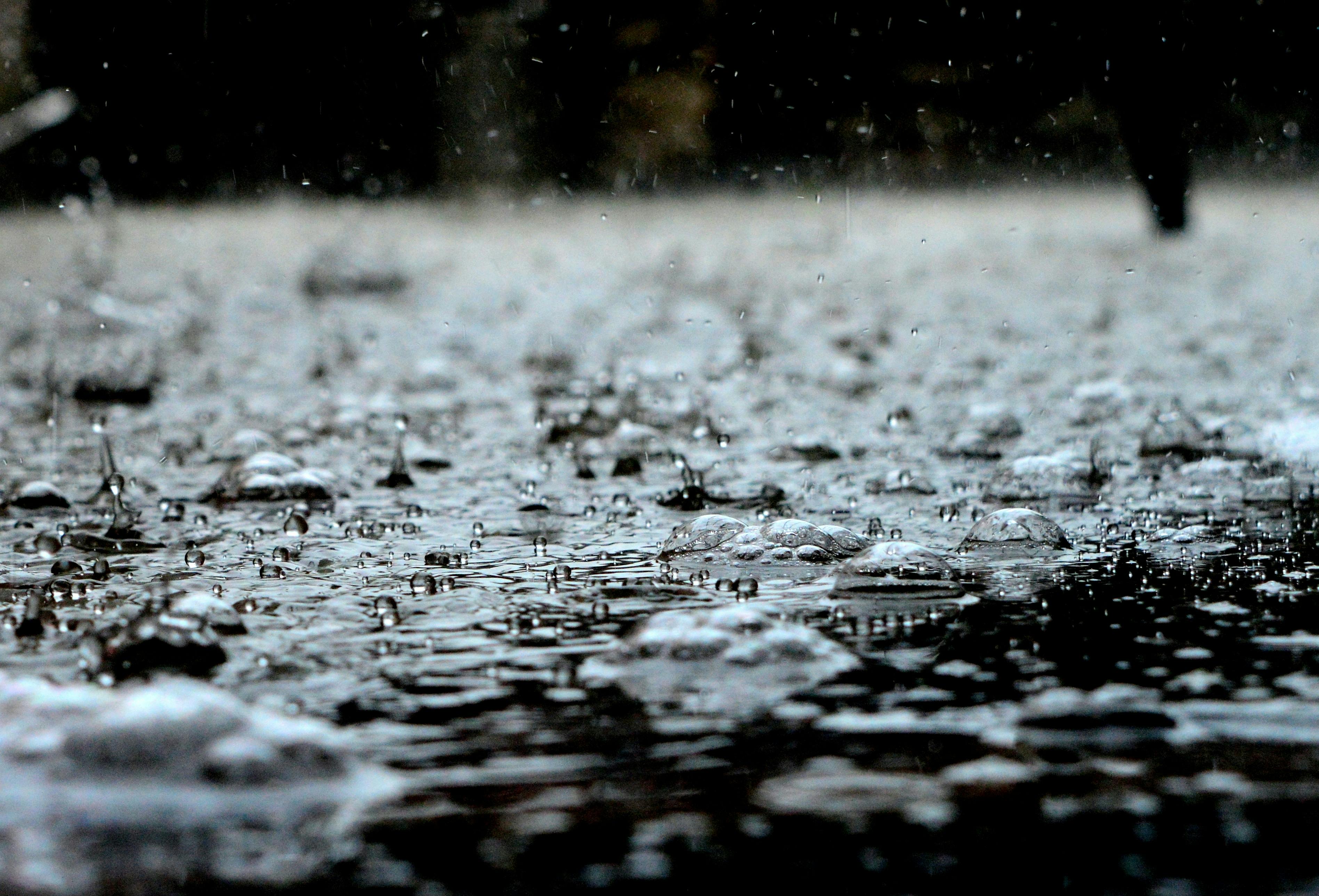Rain water is a form of precipitation that naturally occurs when clouds in the atmosphere become saturated and release droplets of water. Distilled water is a type of purified water produced through the process of distillation. This process involves boiling water and then condensing the resulting steam to create clean, pure water. While both rainwater and distilled water are considered safe to drink, there are some differences between them that should be noted.No, rain water is not the same as distilled water. Rain water is composed of naturally occurring minerals, gases and contaminants that have been collected from the atmosphere, whereas distilled water has been purified through a process of distillation which involves boiling the water to produce steam and then condensing it back into liquid form. Distilled water is free from most contaminants and does not contain any of the minerals or gases present in rain water.
What is Distilled Water?
Distilled water is water that has been purified through a process of distillation. This process involves boiling the water and then condensing the steam back into liquid form. The result is a type of purified water that does not contain any minerals or other impurities. It is often used in laboratories, medical facilities, and even household appliances such as irons and steam cleaners.
Distilled water has many benefits. It is free of chlorine, lead, fluoride, and other contaminants that may be present in tap or bottled water. It also does not contain any of the minerals that can build up in pipes and cause sedimentation problems. In addition, its lack of mineral content makes it ideal for use in humidifiers and other devices where mineral buildup can be an issue.
The distillation process also removes bacteria and other microorganisms from the water, making it safer to consume than untreated or filtered tap water. Additionally, distilled water does not have an odor or taste like tap or bottled water can sometimes have due to chemical contaminants or organic matter present in them. Due to its purity, distilled water can also be used to
Rain Water vs Distilled Water
Rain water and distilled water are two types of water that have different properties. Rain water is simply the liquid precipitation that falls from the sky and accumulates on the earth’s surface. It is naturally occurring and can contain various levels of minerals, salts, and other particles depending on its origin. Distilled water on the other hand is produced by a process of distillation, in which it is heated to boiling, then condensed into a liquid. The resulting liquid has been purified as most of the particles and minerals have been removed.
The primary difference between rainwater and distilled water is in their mineral content. Rainwater usually contains some level of dissolved minerals, while distilled water does not. Rainwater can also contain pollutants such as dust or bacteria depending on where it falls. Distilled water has been purified and does not contain any pollutants or minerals.
Rainwater is generally considered to be safe to drink, although its taste may vary depending on where it fell from the sky. It can also contain high levels of acidity which can be damaging to certain plants if used for irrigation purposes. Distilled water has no taste as all minerals have been
Health Benefits of Drinking Rain Water
Rainwater is one of the purest forms of water available. It is naturally filtered by the atmosphere and has far fewer impurities than water from a tap. This makes it an excellent choice for drinking, as it may contain fewer contaminants than other sources. There are numerous health benefits associated with drinking rainwater, including improved hydration, increased energy levels, and greater overall physical and mental wellbeing.
One of the biggest benefits of drinking rainwater is improved hydration. Rainwater is often much more pure than tap water due to its natural filtration process, so it can help to hydrate the body more effectively. This in turn can lead to increased energy levels and improved physical performance. Additionally, drinking adequate amounts of rainwater can help to prevent dehydration-related illnesses such as headaches, muscle cramps, and fatigue.
Another benefit of drinking rainwater is that it can help to improve mental clarity and cognitive function. Rainwater contains numerous minerals that can help to nourish the brain and improve its functioning. It has also been linked to increased alertness and better concentration levels. Additionally, because
Benefits of Drinking Distilled Water
Drinking distilled water has many benefits. It is free from harmful impurities found in tap and natural spring water, such as bacteria, heavy metals, chlorine and fluoride. It also has a neutral pH level that helps to balance the body’s natural pH levels. Distilled water is also free from other naturally occurring impurities such as iron, magnesium and calcium. As a result, it does not leave behind any residue after drinking or cooking with it. This also means that the flavor of the food or beverage remains intact.
Another benefit of drinking distilled water is that it can help to flush toxins from the body. The process of distillation removes all of the minerals and contaminants from the water as well as many of the dissolved solids. This allows for a much purer form of hydration which can help to flush out toxins and impurities from the body more effectively than regular tap or spring water.
Distilled water is also considered to be “soft” or low on mineral content. This means that it is less likely to leave behind potentially harmful mineral deposits on surfaces like dishes and sinks. It

What is Distilled Water?
Distilled water is water that has been heated to its boiling point, then cooled and condensed into a separate container. This process removes dissolved solids, such as salts and minerals, leaving the water free of impurities. Distilled water is commonly used in healthcare settings, automobile radiators, and irons. It is also used to make distilled beverages like vodka and whiskey.
Why Make Distilled Water?
Distilled water is very pure and free from contaminants that can be present in tap or well water. It can be used for a variety of purposes including medical treatments, cleaning delicate electronics, steam-ironing clothes, and car batteries. Additionally, distilled water tastes better than regular tap or well water.
How to Make Distilled Water
Making distilled water at home does not require any special equipment or ingredients; all you need is a pot large enough to hold the amount of water you wish to distill, a heat source (such as a stovetop), and two containers (one for the boiling pot of water
How to Collect Rain Water
Collecting rainwater is an easy and efficient way to conserve water and reduce your water bill. Rainwater can be used for a variety of purposes, such as watering plants, cleaning cars, or filling swimming pools. With the right setup, you can easily capture and store rainwater for use later. Here are some tips on how to collect rain water:
The first step in collecting rainwater is to set up a collection system. You will need a container to collect the water in, such as a barrel or tank. Make sure the container is large enough to hold all the water you need for your intended use. You can buy specially designed barrels that come with screens and spigots, or you can make your own from any large container.
Once you have your collection system in place, you’ll need to set up a way to channel the water into it. You can use gutters and downspouts attached to your roof to direct the water into the collection container. Make sure the gutters are clean so that leaves and other debris don’t clog them up.
<
Rain Water Collection and Storage
Rain water harvesting is the process of collecting and storing rain water for future use. This can be done in a variety of ways, from simple rain barrels to more complex systems involving underground storage tanks. Collecting and storing rain water can provide an independent source of water for households, businesses, and even entire communities. Rain water harvesting also helps conserve resources by providing a renewable source of water that won’t be affected by drought or other environmental changes.
Agricultural Uses
Rainwater is an important natural resource for agricultural purposes. It can be used to irrigate crops, provide drinking water for livestock, and help replenish aquifers. It is especially valuable in dry areas where other sources of irrigation are scarce or expensive to obtain. Rainwater can also help prevent soil erosion and allow farmers to take advantage of seasonal storms that produce more rain than their land can absorb.
Industrial Uses
Rainwater has many industrial uses as well. It can be used for cooling machinery in power plants, manufacturing plants, and other industrial

Conclusion
Rain water and distilled water are two completely different types of water. Rainwater is naturally occurring and contains many minerals dissolved from the atmosphere. It also contains microorganisms, bacteria, and other contaminants. Distilled water is much purer than rainwater; it has been purified through a process of evaporation and condensation to remove all contaminants and minerals.
The biggest difference between rainwater and distilled water lies in their suitability for certain uses. Rainwater is suitable for a variety of purposes including drinking, irrigation, and washing clothes. Distilled water is suitable for use in laboratory experiments, medical treatments, aquariums, car batteries, steam irons, humidifiers, and some industrial processes.
Ultimately the decision between rainwater or distilled water is based on the purpose for which it will be used. Rainwater may be the better choice for drinking or other household uses while distilled water may be more suitable for laboratory experiments or industrial applications.
Therefore it is important to consider what your specific needs are before selecting which type of water to use.

